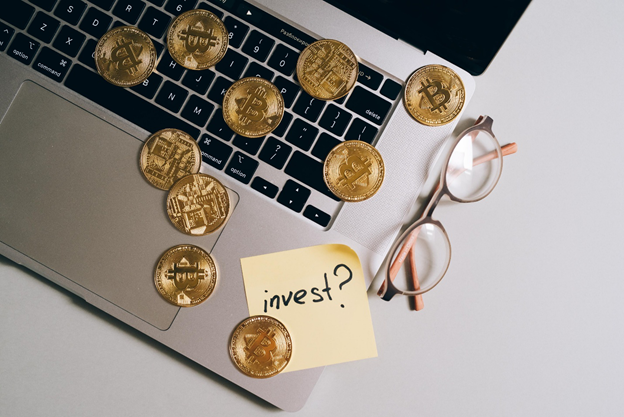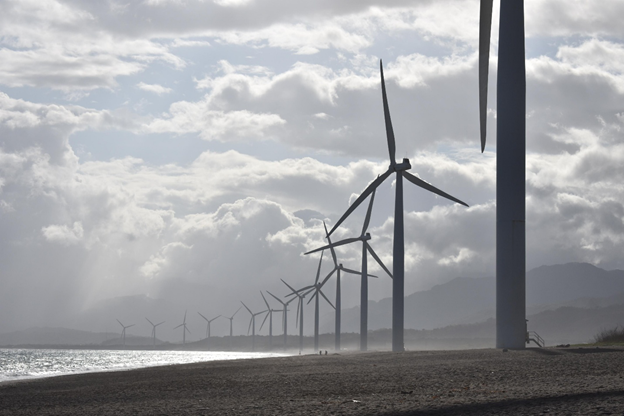
Great Reasons Why You Should Consider The Insurance and Energy Sector While Investing In Africa From Diaspora.
With Africa increasingly moving to the top of everyone's list of places to invest. In my previous blog post, I bulleted reasons why you, as an African Diasporan, should consider investing in Africa, even while I focused on the opportunities in three sectors – real estate, agriculture, and the technology industry.
In this blog, I'll be enlightening you on the opportunities that lie in investing in both the Insurance and Renewable Energy Sectors, even while exposing you to the risks involved, plus tips on how to get it right in both industries.
The Insurance Sector
With Africa being quite an under-insured continent, the rise of the insurance sector in the continent is thriving. And doing so fast. Not until COVID-19, it was predicted to have grown at a Compound Annual Growth Rate (CAGR) of 7% per year between 2020 to 2025, which is three times more than quickly as Europe. Of which fell after Covid with multiple companies and businesses collapsing, yet with an estimated prospect of bouncing back as new methods and techniques are being developed to manage. More on this will be discussed in a later section of this blog.
The need for companies insurance in Africa.
Insurance is a deal that is legally enforceable under which an insurer agrees to pay a third party for losses resulting from a specified occurrence or peril, and this dates back to the Babylonian times, not until it became popular in England amongst sea sailors.
So an Illustration to make this clearer.
Illustrating this, a gentleman from Nigeria, let’s call him Jide, decides to give Bayo, also from Nigeria, fifty thousand naira to hold, so should his car get spoilt or stolen, Bayo pays for its repair.
Jide soon pools hundreds of Bayo’s. And eventually, just one Bayo gets his car stolen, with Jide having to pay for it, while the hundreds of thousands of naira from others are off for a profit for Jide. Allowing him to invest in other investment paths, stock, bonds, and just anything Jide considers worthwhile investing.
That as a whole, is insurance. And with more Bayos on the continent realizing the need for insurance, several insurance companies have been birthed, with South Africa reportedly rating top in the African insurance industry.
Insurance Policies
Having understood the Insurance frame, you need to note that there are different insurance policies.
Life insurance
This is a deal between an insurance company and an insurer such that the insurance company pledges to pay an amount of money on the individual’s death. Depending on the agreement, this also applies to terminal sicknesses.
So this is categorized into permanent and term life insurances, and understanding the intricacies of these categories is essential for your investment decisions.
Term life insurance
With this type of insurance, the individual is insured for a particular term, which could be ten years, could be 20 years; once the term lapses, the deal cuts until the insurer renews it.
Permanent life Insurance
With this type of insurance, the individual is insured for life while the insurer continually renews. So when the individual dies, a certain amount is paid to the insurer’s relatives. With this type of insurance, a high premium is paid to the company.
What do I stand to gain from investing in life insurance?
- Premiums
Insurers are charged premiums to renew their policies, of which a part serves as the benefit to the heirs of the insurer when they die, and another part profit from the insurance company. - You can invest the premium in other investments.
Usually, not so many of the insurance companies' customers die as there is typically a mortality test that is usually carried out by investors. There is some research carried out to understand how it is viable to investing in communities.
But in rare cases where more than estimated customers die, for instance, in the case of a pandemic, the insurance company gets to run at a loss. - When policy holder does not renew insurance
There are situations where the insurer can’t get to continue with renewing the insurance plan. In these situations, the money goes back to the insurance company as profits.

Source: Pixel
Health Insurance
In this kind of insurance, the insurance company is made to pay for your medical bills and drugs when you fall sick.
There are less than 4 percent of the people in Nigeria with access to health care and even less in some other African countries, which shows that a great proportion of the African population is paying for health bills out of their pockets. Thus making Africa a great investment opportunity for Health Insurance.
Considering Investing?
While you are considering investing in the insurance sector, here’s a list of things you should take note of:
- Have a deal of experience in insurance.
You really don’t want to jump into an investment without a slight amount of technical knowledge about it. - Hunt for information:
Seek info about the insurance policies in the country you intend to invest in. The regulatory policies and business obligations. - You need to be patient.
You won’t get it right in one or two months. It will take a bit of time, so while you grow, you should continue adding knowledge, networking, and trying to figure out stuff. - Keep track of your customers.
- Company customer relationship is key and quite important that getting it wrong can ruin a lot of things. Form a relationship with your customers. Collect contact details, email addresses, and phone numbers. Make cold calls, and you can run an email campaign too.
- Customer Satisfaction
Try as much as possible to give your customers the best as the business thrives on referrals. Customer A would bring Customer B, while B bring C, D, and E. - Hire and expand:
Hire a great team. Delegate processes, build a strong team, and form a great relationship with your team. - Finally set big goals.
Investing in the Renewable Energy Sector

Source: Pixel
With more talks surrounding climate change, it’s quite important that Africa soon joins in the push for the use of renewable energy sources in the continent. There are a number of renewable energy source one can consider. These include:
- Solar power: Which comprise of the photovoltaics i.e. solar panels, solar thermals for heating.
- Wind power: Which comprises turbines, harnessing wind energy, used to operate generators, which subsequently deliver electricity into the National Grid.
- Geothermal Energy is gotten from heat that is generated within the Earth.
- Hydropower is the use of falling or rapidly flowing water to generate electricity. In literal terms, water power.
- Bio Mass Energy: In this form, plant materials are used to make a type of fuel that can be turned into electricity
Five reasons why investing the renewable energy in Africa is a great fit for you
Africa with a lot of natural resources, and wanting to use them to make more people have access to energy, meet rising global demand, and boost economic growth while also dealing with the long-term effects of climate change has soon the investing in renewable energy sources. We list here five reasons why investing in the renewable energy sector in Africa is a great opportunity for the African diaspora.
- Government’s cooperation.
Knowing that renewable energy can help combat climate change, even while generating electricity for the unelectrified most governments in Africa have made clear-cut goals for developing renewable energy.
And this is beside the Paris Climate Agreement which has also motivated the laws and reforms in most African countries.
As a point of reference, Ghana wants to go from renewable energy source of 42.5MW to 1,365MW by 2030, while Angola wants to have 70% of renewable energy by 2025, besides Senegal, who also wants a capacity of 30% from renewable source by 2030.
Considering these, it would be great to invest in the renewable energy sector, knowing that you have the backing of the government. - Multiple sources
As earlier emphasized how Africa is rich in resources, with Ethiopia having the capacity of generating 60,000MW from hydropower and South Africa with a herculean capacity of generating 67,000GW of wind energy, thus making it a key game pitch for the investment in renewable energy.
Mozambique was said to have generated 80% of its energy from hydropower, making the country one of the greenest countries in Africa, if not the world. - Low access to electricity on the continent
Currently, over 640 million people don't have access to energy in Africa, thus making the continent in need of a significant investment in the energy sector.
With a huge amount of energy gap in the continent, it has thus increased the need for other energy sources of which renewable energy could serve a great purpose. - It is quite flexible and deliverable.
Knowing that most rural communities are cut off from national grid, electricity supply has made renewable energy a solution since it can be extended to the areas that are not connected to the grid, thus allowing governments or private investors deliver a longer and more dependable power supply. - Super profitable venture.
Finally, the profitability and advantages of investing in the renewable energy sector have attracted a pool of investors to the renewable energy sector, which is, of course, due to favourable government policies, the high demand for energy, and the fight against climate change in the region.
As the industry grows in the continent, it is no doubt how much growth is bound to happen in this sector.
Downside
However, despite the numerous advantages of investing in the renewable energy sector in Africa, there is limited funding for investors, considering how capital intensive it is to invest in a venture such as the renewable energy. This is truer in some sectors of the renewable energy than others with wind, geothermal or hydropower energy more capital intensive than perhaps solar energy.
Conclusion:
Given the considerations mentioned above, it is important that you seek professional advise to settle on a great choice as to where to invest.
However, beyond the industry you eventually invest in, you should see yourself in the diaspora as a key player in the continent’s development and reap rewards along the way.
